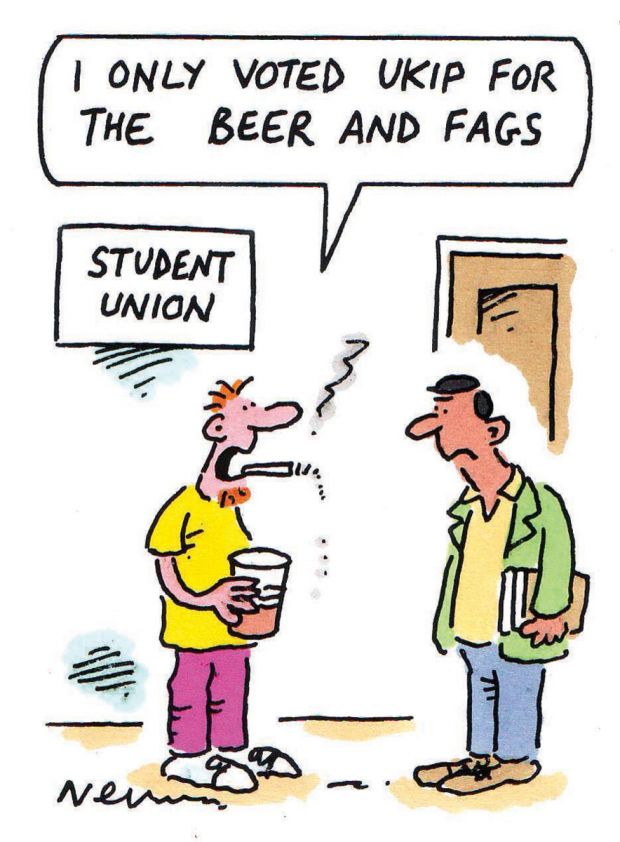
- Victoria Bateman, economics fellow at Gonville and Caius College, Cambridge, attracted headlines in the Daily Mail, The Times and The Guardian after she commissioned an artist to paint her naked as a birthday present to herself. Dr Bateman said she wanted the almost life-size canvas, showing in a Royal Society of Portrait Painters exhibition at the Mall Galleries in London, to challenge the “usual (overtly sexualised) way in which the female body is depicted”, the Mail reported on 14 May. It was hailed as a “brave attempt to change attitudes” towards the female body by The Times, but proved a bit too much for the Mail. The paper’s diarist Sebastian Shakespeare included an image of the artwork but, to “spare Dr Bateman’s blushes”, covered her “virtue” with the college crest – somewhat missing the point of Dr Bateman’s fearless statement about the representation of women’s bodies.
- The Times made a concerted effort to summon the ghost of Climategate on 16 May. Its front-page splash claimed that a journal’s rejection of a paper questioning the sensitivity of global temperatures to greenhouse gas levels was driven by politics, not science. It cited a comment by a peer reviewer that the paper was “harmful as it opens the door to oversimplified claims of ‘errors’ and worse from the climate sceptics media side” [sic]. One of the paper’s authors, Lennart Bengtsson, professorial research fellow at the University of Reading, told The Times that “some scientists are mixing up their scientific role with that of a climate activist”. The journal published the reviews in full and insisted that the manuscript had been rejected because it had “errors” and “did not provide a significant advancement in the field”. Subsequently, Professor Bengtsson also distanced himself from suggestions that there was a “systematic ‘cover up’ of scientific evidence on climate change”.
- The sacking of a Canadian professor who criticised a university president has been widely condemned, the newspaper StarPhoenix reported on 15 May. Robert Buckingham, former executive director of the University of Saskatchewan’s School of Public Health, was fired less than a day after he sent a letter to the provincial government saying that university president Ilene Busch-Vishniac was threatening to end the tenure of professors who spoke out about a cost-saving plan, the paper said. Professor Buckingham was promptly sacked, escorted from campus and told to never return. Although he was later reinstated to his faculty post, the provost behind the decision, Brett Fairbairn, denied that it was an issue of academic freedom, which he said applied only to teaching and research, the paper reported. Dr Fairbairn has now resigned, citing his “genuine interest in the well-being” of the university.
- UK Independence Party leader Nigel Farage’s stock may be high among the general electorate ahead of this week’s European elections, but it seems he has few supporters in higher education. In a letter to The Times on 19 May, 23 vice-chancellors warn that they risk losing hundreds of millions of pounds in research funding should Britain leave the European Union. Representing the Universities UK board, they add that a withdrawal would diminish the strength and appeal of UK universities. The letter is a rare example of the sector intervening directly in election politics, although it might simply be trying to atone for its role in Ukip’s rise: the party was founded at the London School of Economics in 1993 by history professor Alan Sked (who left Ukip in 1997).
- If Hollywood blockbusters have taught us anything, it is that it’s never wise to entrust decision-making power to robot soldiers. But it seems that the US military is pushing ahead with research into whether armed machines could ever make ethical decisions, The Times reported on 17 May. The US Office of Naval Research has awarded grants of $7.5 million (£4.5 million) to researchers at several universities to explore the idea. Some have warned that trying to program moral reasoning into killer machines has worrying implications. Stanford University’s artificial intelligence expert and online course guru Sebastian Thrun said it was “of utmost importance that people control robots and…remain accountable for robot actions”.
Register to continue
Why register?
- Registration is free and only takes a moment
- Once registered, you can read 3 articles a month
- Sign up for our newsletter
Subscribe
Or subscribe for unlimited access to:
- Unlimited access to news, views, insights & reviews
- Digital editions
- Digital access to THE’s university and college rankings analysis
Already registered or a current subscriber?
Please or to read this article.
